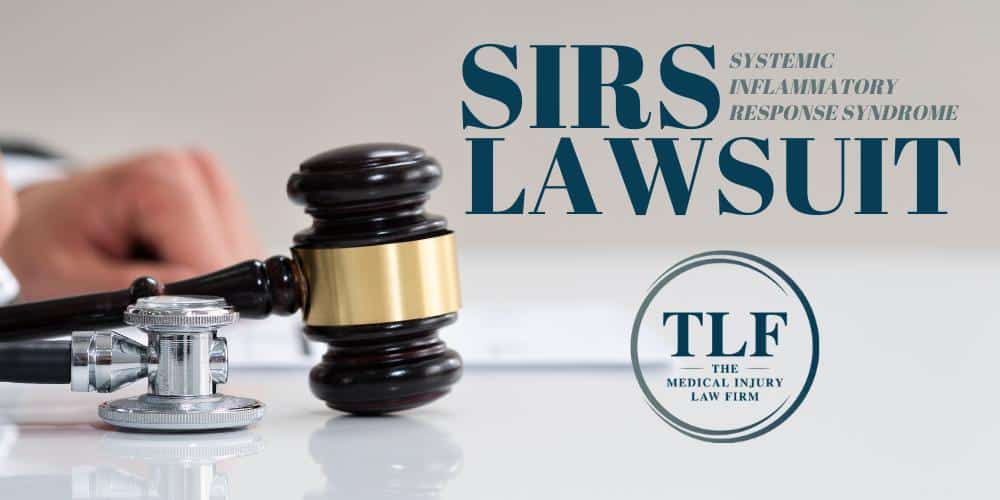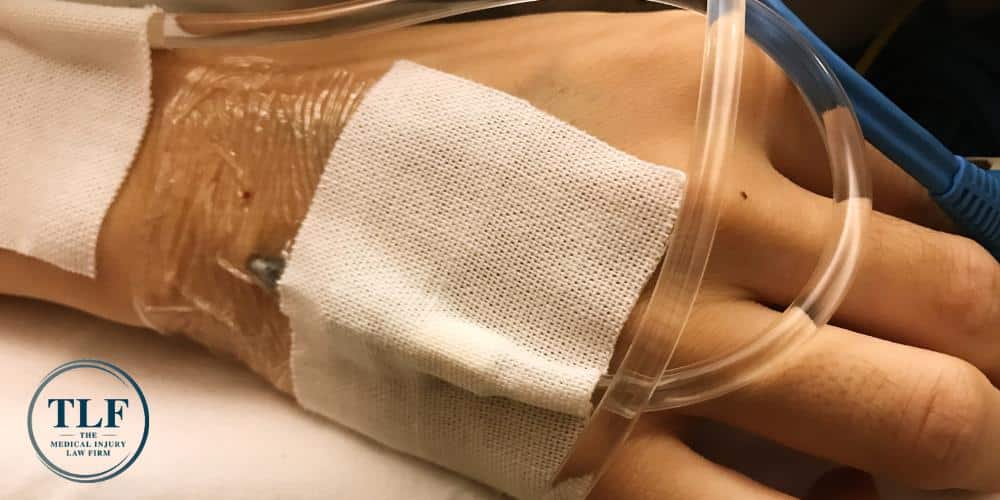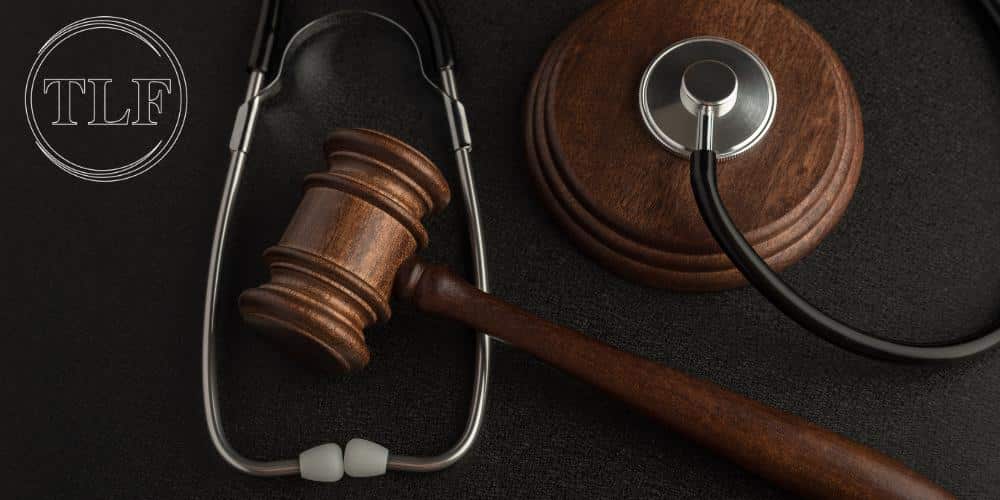Putting Our Knowledge And Experience To Work
Home » Medical Malpractice » SIRS
SIRS Systemic Inflammatory Response Syndrome Lawsuit

SIRS, Systemic Inflammatory Response Syndrome, is a medical condition in which inflammation takes over the entire body. This can either occur due to an infection or noninfectious causes, like major trauma, surgery, burns, cancer or pancreatitis. If a patient develops an untreated infection, it can develop into sepsis. Once the infection turns into sepsis, it can lead to organ failure, tissue damage, and death.
When doctors fail to meet the standard of care when diagnosing or treating SIRS, it can lead to injury or death. If you believe that you have a medical malpractice claim or wrongful death claim related to SIRS, contact the attorneys at TLF: The Medical Injury Law Firm to schedule your free consultation today. You can reach us by calling our Northern Kentucky office at (859) 578-9130, our Ohio office at (513) 651-4130, or toll-free at (800) 698-4054.
What is SIRS?
Systemic Inflammatory Response Syndrome, also known as SIRS, is a body’s response to an infection or severe trauma. In severe cases the body’s own defense mechanisms attack the body and can lead to organ damage and death. In order to be diagnosed with SIRS, you must have two or more of the following symptoms: low or high body temperature, increased heart rate, increased breathing rate, and an abnormal white blood cell count. For children the emphasis is placed on the temperature and white blood cell count. If your SIRS diagnosis is caused by an infection, it can lead to sepsis once the infection enters the bloodstream. Severe sepsis or septic shock occurs when multiple organs are damaged due to the infection. Once septic shock sets in, patients are at a heightened risk of tissue damage, organ failure, and death. Patients experiencing severe sepsis are admitted to the ICU, where they will receive fluids and medications.

What is Quick SOFA?
Quick SOFA, Sequential (sepsis-related) Organ Failure Assessment, is the measuring criteria to determine if a patient is at risk for developing sepsis. Also known as qSOFA, this quick diagnostic test helps predict the mortality of a patient that has the symptoms of sepsis. The qSOFA score ranges from 0 to 3. Patients that score between 0-1 are at a lower risk of dying from sepsis, but the danger of developing sepsis is still present. Those patients that score between 2-3 are at a higher mortality rate compared to the lower-risk patients.
QSOFA Criteria
Healthcare professionals will administer the assessment to patients outside the Intensive Care Unit (ICU) to help determine if they need to be admitted for a SIRS-related infection. The criteria for the qSOFA are as follows:
- Does the patient have low blood pressure?
- Has the patient’s respiratory rate increased?
- Is the patient experiencing an altered mental state?
If your loved one is suffering from two of the following symptoms, this will meet the qSOFA criteria and can be used to identify a sepsis infection.

SIRS and Signs of Septic Shock
As previously mentioned, SIRS does not only develop due to infection. It can also be caused if the body has experienced an extreme trauma. In addition to lowered blood pressure, increased respiratory rate, and altered mental state, here are the other signs to look out for if you suspect SIRS has developed into sepsis:
- Fever
- Chills
- Low body temperature
- Increased heart rate
- Fast respiratory rate
- Infection
Who Is At Risk of SIRS?
Patients that are already in poor health or immunocompromised have an increased risk of developing SIRS/sepsis. Other individuals at risk may have the following health-related illness:
- Diabetes
- UTI
- Leukemia
- Traumatic injuries
- Burns
- Catheters
- Cirrhosis
- Solid tumors
If you or a loved one have a life-threatening medical condition and you suspect an infection has developed, seek medical attention immediately. The sooner that medical treatment is administered, the less likely the infection will result in septic shock, permanent injury or death.

Diagnosis After SIRS Qualification
Once a patient is diagnosed with SIRS/sepsis, treatment must be administered quickly in order to improve the chances of recovery and prevent septic shock, permanent injury or death. Doctors will order blood tests and monitor vital signs, as well as evaluate the patient’s medical history to look for any other symptoms that may result in an infection. The patient’s medical history can play a big factor in determining exposure to an infection if the patient has traveled, what current medications they are on, any occupational hazards, alcohol use, tick bites, or if they show signs of an underlying infection.
SIRS and Medical Malpractice Lawsuits
If a patient shows signs of SIRS or sepsis and doctors fail to respond, this could be considered medical negligence. If the doctor does not follow the standard of care either during a surgery or after a surgery, infections have a greater risk of developing and leading to SIRS. If untreated, the infection can lead to severe sepsis or septic shock, which will damage organs and lead to organ failure or death.The vital organs will start to shut down depending on how close they are to the infection. For example, the patient will experience lung failure if the lungs get infected.
Medical negligence leading to a failure to diagnose treat SIRS may include:
- Failure to diagnose an infection
- Failure to treat an infection
- Failure to monitor the surgery
- Failure to maintain sterile conditions
- Failure to appreciate signs or symptoms of SIRS
- Failure to observe and document treatments
- Failure to inform the risks related to surgery

Why You Need an Ohio or Northern Kentucky SIRS Medical Malpractice Attorney
Damages that you may be entitled to from a medical malpractice lawsuit may include future medical care for permanent injuries, medical bills, loss of income, and pain and suffering. If a loved one died due to a SIRS-related illness like sepsis, you could be entitled to a wrongful death lawsuit and receive compensation. Damages awarded from a wrongful death suit include funeral expenses, as well as medical bills, lost earning capacity of the deceased, and more. When you suspect medical negligence, contact The Lawrence Firm today. Our attorneys have more than 100 years of combined experience of serving clients in Kentucky and Ohio in medical malpractice cases and personal injury claims. During your case, you will be represented by an experienced Ohio or Northern Kentucky medical malpractice attorney who fights for you to receive the maximum compensation you deserve.
Call TLF: The Medical Injury Law Firm toll-free at (800) 698-4054 or complete our online intake form today for a free consultation.
Practice Areas
You Pay No Fees Unless We Win!
We are happy to offer a free consultation to evaluate your case. If you hire us as your legal counsel, we will represent you on a contingency-fee basis. You will pay no attorneys’ fees unless we recover financial damages.
